Meyer Burger is the grey eminence of the photovoltaic world. And it has just stepped out to show everyone who’s boss here. Known for its precision Swiss engineering, Meyer Burger has leveraged decades of experience in photovoltaic technology to deliver a truly European and excellent product.
The company has over 20 years of experience in the sector and has supplied equipment to the world’s leading solar energy manufacturers such as IBC Solar, Panasonic and Hanplast Energy.
Where to Buy
Who is Meyer Burger?
Meyer Burger is a manufacturing company from Switzerland. They manufacture solar photovoltaic panels and almost all the machinery for photovoltaic production. Their speciality is HJT photovoltaic cells (which have a higher performance at high temperatures). Besides, they are connected with SmartWire technology (which makes them more resistant to microcracks), inserted between two sheets of glass (which prolongs their lifespan)
Unlike other brands that have recently appeared on the market and offer a 30-year guarantee, Meyer Burger has grounds to claim that its modules are really reliable. Although Meyer Burger has only started producing under its own brand in 2021, it cannot be considered a newcomer in the industry. They have fully mastered all stages of the production process and have access to the best in-house machines. Also, they started production on the premises vacated by SolarWorld, the former world leader in photovoltaics, so at least some of the staff have extensive experience in the sector.
For more info, visit Meyer Burger’s website here.
Meyer Burger Solar Panels: Built to Last
The quality assessment describes the likelihood that panels from a certain brand will last more than 25 years without failure. It is based on the warranties provided, the manufacturer’s experience and the construction of the modules.
The product warranty for photovoltaic solar panels is excellent: 25 years warranty for Glass/foil modules and an astonishing 30 years for Glass/glass modules. Yes, all manufacturers talk about a 25-year warranty. However, they usually refer to the power warranty, which only describes the power of the panels over time. This is what is covered by the product warranty, which is usually 10-15 years.
Meyer Burger stands out positively here against the competition. And that’s not the end of the good news. In the event of a failure, Meyer Burger will not only send you a new module but will also pay for its replacement. In other words, the company will also take care of all transport and installation costs required to get the new module up and running (up to a value of 150 euros per solar array and 25 euros per module).
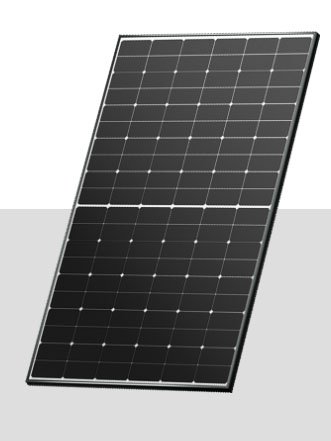
The Tech Behind Meyer Burger’s Durable Solar Panels
Now let’s move on to the details of the module construction:
SmartWire
Smart Wire Connection Technology or SWCT is a photovoltaic module manufacturing technology that replaces cell soldering with bus bars by laminating a network of 18-32 microwires with 990-1760 contact points. This increases the resistance to microcracks and reduces the temperature of the production process from 240-340 to 140 degrees Celsius.
KEY INFO
Microcracks in solar panels are tiny fractures that can form in the silicon cells of the panel. They can significantly impact a panel’s performance.
Glass-glass
Meyer Burger Glass panels are manufactured using glass-glass technology, which means they are protected on the back by another sheet of transparent glass, instead of a plastic sheet. As a result, the cells are almost insensitive to microcracks and are additionally more resistant to chemical compounds. Consequently, glass-glass modules have a longer service life, which is confirmed by a longer 30-year warranty.
Sizes
Someone might object that the most powerful solar photovoltaic panels from Meyer Burger have ‘only’ 400 Wp of power, while the Chinese have even 550 Wp. However, the difference here is simply one of size. Those 550 Wp modules are gigantic and that’s why they are so powerful! On the contrary, the smaller modules are reliable because they are better protected by the frame and are less exposed to stress.
High-Temperature Resistance and Efficiency
The higher the efficiency of the photovoltaic panels, the more kWh they will produce per kWp of installation and the smaller the surface area the installation will occupy. We focus here on performance under conditions closer to reality. How does the module withstand high temperatures? How does it perform in low sunlight conditions? To what extent does it lose power over time? The evaluation is based on the performance of the brand’s flagship module, the Meyer Burger Glass 390. More details here.
The temperature resistance is 95.08%. This is a very high result. These modules operate with high efficiency despite high temperatures. This is possible thanks to the application of HJT technology (more info here). It consists of combining very thin layers of amorphous and crystalline silicon. In this combination, crystalline silicon provides high power, while amorphous silicon improves performance at high temperatures.
The power guarantee ensures that these modules will maintain 90.75% of their initial power after 30 years. This is the best result we currently have in our database.
All of this indicates that they are extremely efficient modules that perform very well in real-world conditions.
KEY INFO
These modules operate with high efficiency despite high temperatures, thanks to the application of HJT technology.
The Security of a European Warranty
Meyer Burger offers a 30-year warranty. The question then arises whether the company will survive that long. If not, the warranty is worth as much as a piece of paper.
The European company Meyer Burger is originally from Switzerland. The warranty is backed by Meyer Burger (Industries) GmbH, which is the company’s German branch. This is generally a big plus for the company’s credibility. While Chinese manufacturers are generally receptive to claims nowadays, it’s uncertain if they will maintain the same level of customer service once the solar energy boom wanes. This could happen within the next 10 to 15 years. With a European manufacturer, your warranty should be honoured for its entire duration. Besides, in the worst case, you can go to an independent European court.
Have you ever heard the claim that there really are no European modules because their cells are imported from China? Well, Meyer Burger refutes this thesis. Meyer Burger produces its own photovoltaic cells at its factory in Thalheim, Germany. They seem to know what they are doing, as they previously manufactured diamond saws for cutting silicon. As we mentioned, they also produce equipment for manufacturing photovoltaic modules. So, it is a vertically integrated company. In other words, they produce everything they need. This generally has a positive impact on the stability of the company.
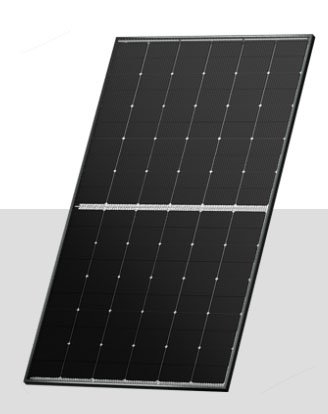
Investing in Solar Innovation
On the other hand, Meyer Burger is expanding its photovoltaic cell factory in Thalheim. They plan to produce 1.4 GW of cells per year. Also, they are expanding their module factory in Freiberg near Dresden. This factory will reach a production capacity of 1 GW of modules per year. Also, Meyer Burger is opening a new factory in Arizona, USA, with a processing capacity of 400 MW. And the target production will be 1.5 GW.
All this at a time when global supplies of photovoltaic modules and cells are seriously disrupted. Meyer Burger’s move to produce its own modules with its own cells fits perfectly with the needs of the market.
Lastly, Meyer Burger is developing the photovoltaic solar panels of the future, which according to its vision will be realized in HJT IBC technology. These will be the already discussed HJT cells, connected with cables at the back of the cell, not with busbars at the front or with a SmartWire mesh. This increases the power of the module and makes the cells almost insensitive to microcracks. Investments in technological development are a factor that distinguishes small manufacturers from large players.
Last but not least, Meyer Burger performs better on the stock market than most companies related to renewable energies.
High-Quality Solar with Low Cost Per kWh
Currently, the prices of photovoltaic solar panels are undergoing drastic changes. The reason is the disruption of global supply chains and a 280% increase in global silicon prices. The more dependent a manufacturer is on raw material supplies from other parts of the world, the more it has to increase prices.
Meyer Burger produces its own cells and also sources part of its stock from local European suppliers. Besides, thanks to HJT technology, they can reduce cell thickness more aggressively than the competition, which relies primarily on PERC cells.
All of this contributes to the fact that Meyer Burger PV panels are reasonably priced for high-end panels. Net prices are around 310-320 Euros. We could estimate that in 25 years, one of these panels would produce around 9100 – 10500kWh. Then, this would give an approximate cost of 0.029 -0.035 Euro per kWh.
So, regardless of whether your priority is a quick return on investment or a good warranty and long-lasting performance, Meyer Burger is a very cost-effective option.
Where to BuyConclusion
To sum up, Meyer Burger solar panels offer a distinctive combination of durability and efficiency. This makes them a standout choice in the solar industry. With their advanced HJT and SmartWire technologies, Meyer Burger panels deliver high efficiency, even under demanding conditions. Also, they are built to last for the long haul, backed by an impressive 30-year warranty. This combination of Swiss engineering, vertical integration, and commitment to European production sets Meyer Burger apart from other manufacturers. So, this gives customers confidence in their investment and reliability.
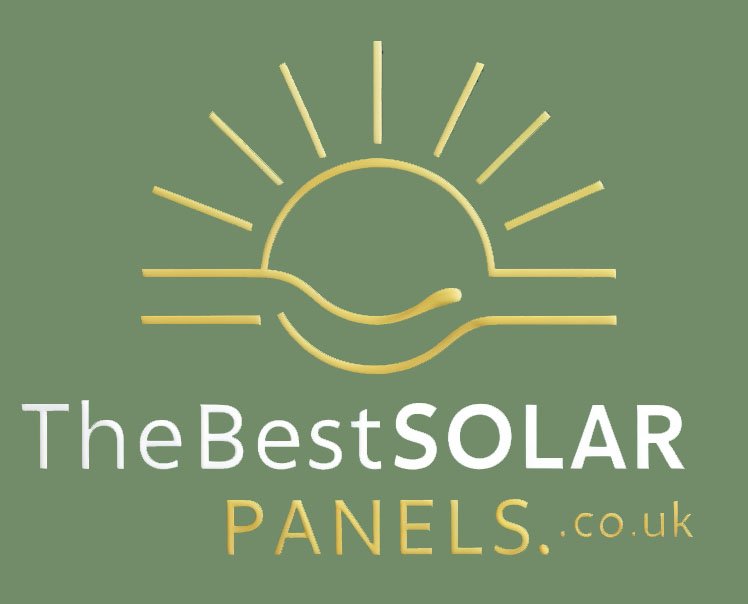
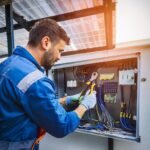

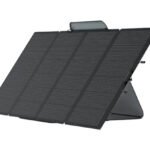
Leave a Reply